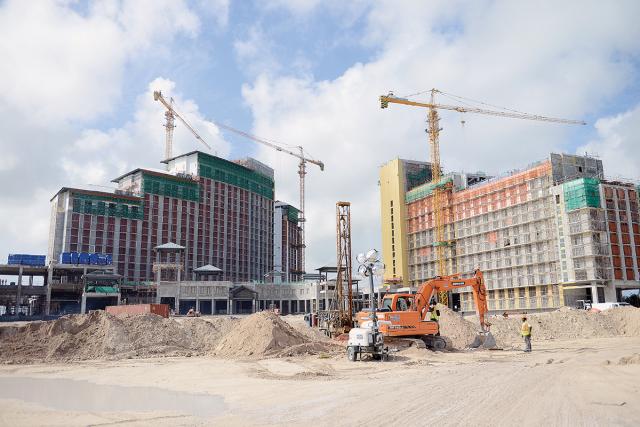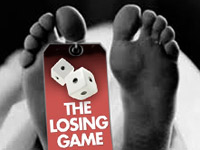 “Hey, hold on Katrina! Way you going with all dat speed?” “Gal Shelly I gatta get tah dah number place… My grammy ge me one number last night.” Shelly was now confused so she asked, “What grammy? I thought you done bury your last grammy?” Katrina ‘buss’ out laughing, “Gal you too fool! I dream bout grammy last night and she ge me dah tree ball. I gah box 242 fah dollar in Miami, and den I gah run it straight in Chicago.”
“Hey, hold on Katrina! Way you going with all dat speed?” “Gal Shelly I gatta get tah dah number place… My grammy ge me one number last night.” Shelly was now confused so she asked, “What grammy? I thought you done bury your last grammy?” Katrina ‘buss’ out laughing, “Gal you too fool! I dream bout grammy last night and she ge me dah tree ball. I gah box 242 fah dollar in Miami, and den I gah run it straight in Chicago.”
If you have not heard conversations in your circles similar to that of Shelly and Katrina’s above, you must not have been living in the Bahamas for the last ‘umpteen’ years. I can recall the days when the ‘number man’ walked around town with a pencil and a receipt book. As a matter of fact, back in the day you could find a ‘number man’ at any taxi stand around Freeport. But those days are long past, and notwithstanding the illegality of the ‘number business’, over time as technology advanced, so has the medium of exchange between the ‘number man’ and his customers.
When I returned from university a few years ago, I was a bit confused when the government would boast that per capita more people in the Bahamas had access to the internet than any other country in the region. I only recently understand how this fact came to be. The Bahamas has more web shops than any country I have ever visited.
In today’s society with the proliferation of web café franchises, buying numbers has become increasingly sophisticated and private. Even reverends and deacons are getting in on the action. If you do not wish to be seen around the web shops, that’s no problem. Simply have a trusted friend put a few dollars on an account for you, and you can buy your lucky numbers from the local ‘number man’ in the convenience of your home via the internet.
Despite illegal gambling being an indictable offence in The Bahamas the business continues to flourish. It is not strange to read or hear about a ‘lil buss’ every now and again, but no government of The Bahamas has ever taken the offence with any degree of seriousness. Actually, you may or may not be surprise to know how many past and current members of parliaments are stakeholders in the ‘number business.’
During the last election campaign both major parties indicated their willingness to entertain a referendum on ‘numbers,’ with a view to possibly move the business into the category of legitimate activities. But does the issue of illegal gambling ends there? I highly doubt it! First of all, the history of The Bahamas confirms that illegal businesses are always more profitable. We need only look at our involvement in slavery, boot legging, drug trafficking, and more recently in the news, human smuggling.
If governments are prepared to entertain the notion of a referendum on the ‘number business’ with a view of possibly revamping the same into a national lottery, all aspects of illegal gambling should be addressed in one discussion. Otherwise, the other forms of illegal gambling that are left out of the conversation will become the new profitable idea for those who find illegal activities more lucrative.
Other forms of illegal gambling that are wide spread throughout this country include, spinning and slot machines in local bars, sports betting, high stakes poker games in residential communities, Bahamians gambling in legitimately operated casinos, and the pure vanilla dice game.
The topic of illegal gambling includes much more than buying numbers, and Bahamians have distinct views on each aspect of the subject matter. For example, many Bahamians are of the view that we should be allowed to gamble in our own casinos. However, will the issue of Bahamians gambling in casinos operated in The Bahamas be a subject area in the proposed referendum? Probably not!
It is my hope that if and when governments of The Bahamas put forward a referendum concerning illegal gamble, that as many subject areas and issues are including in such referendum to enable a conclusive policy position. I am not a proponent of gambling, whether legal or illegal. But I am a proponent of governments and citizens making decisions only after looking at all the issues, and taking into account how a decision affects our future.
Tru da Con-ah with David Jordine
The Freeport News



